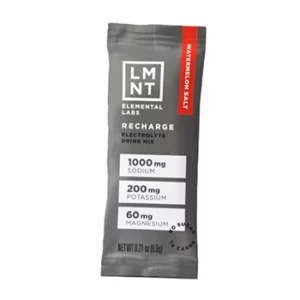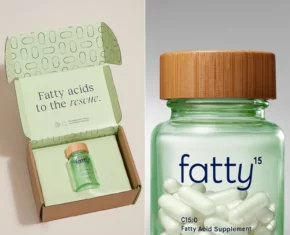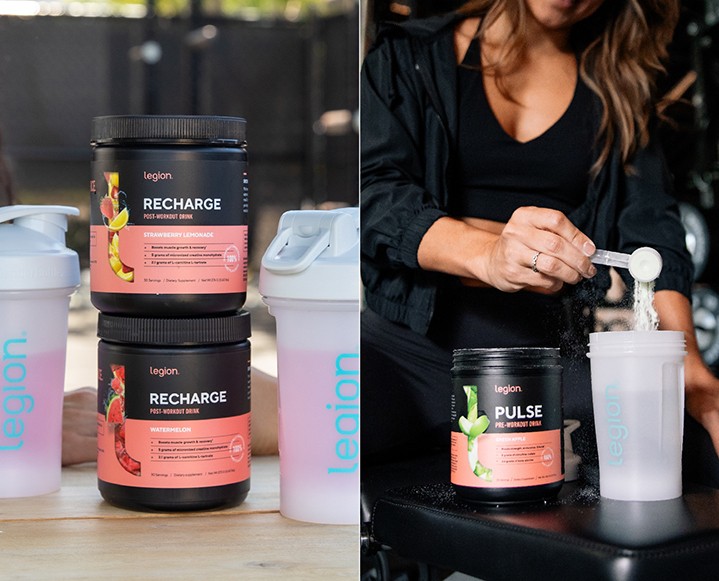When dealing with seasonal depression, living well can feel like an impossible goal, but waiting until summer isn’t a solution; the longer we linger in depression, the more difficult it can feel to break free. According to nutritionist and founder of The Women’s Wellness Collective, Kristin Dahl, there are simple but impactful shifts we can make to begin the shift back toward a vibrant sense of health. Here are holistic protocols for seasonal depression that have helped Kristin with her own clients…
During the winter months, we tend to feel a bit low and naturally turn inward, with less of a desire for high levels of activity and social engagements. This is our instinctive response to the winter season, and when we answer this call for deep rest, we begin to sync up with the innate rhythm of our nature. When it comes to low moods, it’s essential that we start with the basics and make sure that our fundamental needs are being met: adequate filtered water, fresh light and air, healthy food, regular exercise, circulation and ample time in nature.
Many other factors play a role in deeper states of depression: Too much screen time, a lack of social connection and toxic environments impact us more than we realize. A heavy toxic load, hormonal imbalance, gut issues and genetics strongly influence how we treat and move through debilitating states of depression.
In order to heal from depression, it’s important to consider the mental and physical components as a whole. Tailor these suggestions to your lifestyle, and integrate what feels right for you.
Remember, these tips are best for mild cases of seasonal depression, not clinical disorders. If you feel that you’re suffering from something more serious, contact a health professional.
Unplug
Regularly unplugging from technology and taking space for quiet reflection offers so much clarity. It’s imperative that we allow this space for ourselves. Constantly filling up our time with the distraction and ego projection of social media is often a way to avoid the feelings deep inside us that need attention. It’s essential to create boundaries with tech use and take space whenever needed.
Feeling lonely? Call a friend or family member, plan a date night, try something new, sign up for a class or start a women’s group. Nothing is better for the soul than genuine human connection.
Support Your Gut
The gut is directly connected to the brain via the vagus nerve, so any dysbiosis (imbalanced gut flora) will have an impact on the brain, negatively affecting cognitive function and mood. The majority of our feel-good hormones (serotonin and dopamine) are produced in the gut, which is why it’s often referred to as our “second brain.” A healthy, balanced gut that is functioning optimally will result in better moods, higher energy and an overall sense of calm and wellbeing.
Support a balanced microbiome by consuming fermented foods that contain high levels of natural probiotics, such as raw sauerkraut, beet kvass, kimchi, coconut yogurt, tempeh, miso and natto. These all replenish healthy bacteria in your system.
Supportive herbs that aid in digestion and support healthy gut flora include ginger, lemon balm and fennel.
It may also be beneficial to include digestive enzymes and hydrochloric acid (commonly called HCl, aka stomach acid) to improve digestion. Testing your stool and supplementing with high-potency probiotics may also be necessary. Working with a holistic practitioner through this process can be incredibly supportive.Nature Therapy
We’ve developed deep attachments to being constantly “on.” Getting into nature is one of the quickest and most effective ways to reset the nervous system. Connecting to nature eases stress and tension in the mind and body and soothes our primal need to feel connected to our environment.
Earthing (walking barefoot outdoors in the dirt, grass or sand) is a particularly grounding practice that helps to remineralize the body. Earthing supports all body systems and helps to reset our biological clock, regulate circadian rhythms and balance cortisol levels. These effects can significantly reduce seasonal depression symptoms and lift mood.
Nourishment
Balance blood sugar: The brain depends on a steady supply of glucose to function optimally. Hypoglycemia has been directly linked with depression, so balancing blood sugar is vital to mental health. Blood sugar spikes and crashes can also worsen symptoms such as anxiety, fatigue and irritability.
Eat balanced meals: Eat balanced meals and stick to regular meal times to help stabilize the body. Include a healthy protein source (such as free-range, organic meats and eggs, wild-caught fish, beans and lentils, chickpeas, etc.) and a healthy fat (such as avocado, olive oil, raw nuts and seeds, chia seeds, flaxseed, hemp hearts, etc.) at every meal to keep blood-sugar levels on an even keel.
Avoid refined carbohydrates + Sugar: Avoid carbs such as white pasta, bread, rice and sugars, including natural sugar sources such as fruit juices and dried fruits as much as possible, as these are the primary culprits responsible for the spikes (and corresponding drops) in blood-sugar levels.
Support brain health: Healthy fats support brain function as they reduce inflammation, boost mood and energy, balance blood sugar and support cell-membrane function. Lipids in the brain are also made up of omega 3 fatty acids, and a deficiency of omega 3s, in particular, has been linked to depression. Supplementing with fish oil can be incredibly supportive.
Get Your OmeGAs In: Omega 3-rich foods include cold water fish, mackerel, wild salmon, sardines, avocado, chia seeds, flaxseed and walnuts.
Minimize alcohol + caffeine: These are stimulants that can alter mood and digestive function while also contributing to blood-sugar imbalances. Make sure to stay hydrated with plenty of filtered or spring water throughout the day (aim to drink half of your body weight in ounces per day) and include alternative options to alcohol and caffeine such as herbal teas and adaptogenic mushroom blends.
Reduce inflammation + increase nutrients: Inflammatory foods (such as allergens, refined foods, sugars, dairy, gluten, chemicals and additives) can exacerbate depression and mood disorders. By contrast, nourishing and nutrient-dense foods improve and support cognitive function, energy levels and mood. Proper nutrition is a leading factor in treating depression, as the food you supply your body with is also fueling your energy and mental health.
Eat Fresh: Include plenty of fresh organic vegetables, lean protein and healthy fats at every meal.
Herbs for Depression
Adaptogenic herbs improve stress hormone levels and help to relax the nervous system. They assist in the production and regulation of cortisol when the body is under stress. Two adaptogenic herbs that are especially beneficial for depression are rhodiola and ashwagandha.
+ Rhodiola assists with serotonin and dopamine utilization in the body, which has highly positive effects, as serotonin and dopamine are neurotransmitters that improve our moods and increase focus and memory.
+ Ashwagandha reduces the effects of depression and anxiety and helps to balance hormones. Both are best taken in tincture and powder forms.
+ Gingko has antidepressant power, as well as anti-inflammatory, relaxant and neuroprotective effects. It is best taken in tincture form.
+ Lemon balm helps relax and regulate the nervous system, gently lifting mood. It is best taken as a tea or infusion.
Supportive Supplements
Certain deficiencies are very common when it comes to depression. Support your mind and body by supplementing with the following:
+ Vitamin D: Vitamin D is essential for cognitive function. Vitamin D deficiency has been clearly linked to depression and is extremely common in those living in the Northern Hemisphere. Get your vitamin D levels tested before supplementing, as vitamin D is a fat-soluble vitamin, so over-supplementing can be dangerous. It’s best to work closely with a holistic practitioner if your levels are chronically low.
+ B vitamins: Involved in neurotransmitter function, the B vitamins support positive mood and help the body to better manage stress and anxiety. Low levels are common (especially B12 in vegetarians and vegans) and have been linked to mood disorders.
*You may also have a genetic mutation (MTHFR) that impairs your body’s ability to process folate (vitamin B9). This mutation can alter neurotransmitter function and disrupt hormones. It has also been linked to depressive disorders and autoimmunity. Get your genes tested with companies like 23andMe.
+ Probiotics: Pop some probiotics to help to boost and restore gut flora. Serotonin, an important chemical neurotransmitter that regulates mood, is mainly produced in the gut, and many important nutrients including vitamin B12 and iron are absorbed in the small intestine. A healthy gut is essential for those vitamins and minerals to be properly absorbed and assimilated by the body.
+ Magnesium: Calming and hormone-balancing, this mineral is essential for treating depression. Magnesium-flake baths are a soothing restorative option that are highly effective at raising magnesium levels within the body.
Supportive Lifestyle
Move your body every day: Exercise acts as an antidepressant, as it creates feel-good endorphins, cleanses toxins, increases energy and circulation and boosts confidence. Physical activity also increases blood flow, moves stagnant qi within the body and provides the blood with more oxygen, all of which leave you feeling and looking your very best. The act of regularly moving your body and integrating movement into your daily routine will do wonders. Even a quick walk around the block is better than nothing! In fact, walking outside is one of the easiest ways to shift energy. Whenever you’re feeling low, go for a walk and focus on taking deep breaths along the way.
Some great options include yoga, walking/hiking, strength training, swimming, dancing or anything you enjoy that gets your heart rate up!
Get quality sleep: Sleep is when our bodies work at healing and repairing, so it’s incredibly important for all bodily functions and especially for brain function. Lack of quality sleep is associated with negative cognitive functioning, poor stress management, weight gain, imbalanced hormones and low moods. Start to wind down from your day by turning off all electronics at least an hour or two before bed, making a relaxing tea and getting cozy with a book or guided meditation. Try your best to get to bed before midnight and aim for seven to nine hours per night to ensure you’re well rested and functioning optimally.
Sleep hygiene is just as important as a bedtime routine. This means sleeping in a cool (60-67°F) and dark room, limiting daytime naps to 30 minutes max and avoiding anything stimulating too close to bedtime (such as exercise or a late dinner).
Social connection: Surround yourself with those who lift you up, support you and nourish your life. As difficult as it may be, releasing toxic relationships is highly necessary, as they inhibit your ability to grow and to consciously create the experience you want for yourself. Build a community with those who share your vision. Create feel-good routines and rituals with your friends. We are social beings, and connection is a crucial part of our mental health and wellbeing.
Try volunteering, setting regular friend dates, participating in group classes and seeking help from a therapist or coach.
Support adrenal and thyroid function through stress management: Stress is directly connected to depression. Chronic stress depletes the adrenal and thyroid glands and creates hormonal imbalances. Increased cortisol levels dis-regulate hormones and trigger effects such as mania, nervousness, depression and insomnia. Underactive thyroid functioning (hypothyroidism) is also linked with depression and can trigger symptoms such as lack of concentration, fatigue, mood swings and irritability.
Practice stress management techniques that feel good to you: Yoga, meditation, deep breathing, journaling, walks in nature or time spent with friends, family and animals are all highly beneficial options.
Self-Care
Emotional healing: Set aside time every day to relax and simply be. Downtime is highly underrated. Listen to healing music, meditate, journal or engage in activities that make you feel grounded and calm. Unplug and daydream for a while. Take a magnesium-flake bath with lavender essential oil (lavender oil triggers brain reactions that promote a sense of calm and relaxation). Choose activities that nourish your soul, and then give yourself time to melt into them and to fully relax.
Ask for help: Talk to your close friends, your partner or your family when you feel stuck or like you need love and understanding. It can also be helpful to seek advice from a therapist or holistic practitioner. It’s important to feel like someone is holding space for you and to share your feelings versus holding them in.
Try talk therapy, somatic therapy and somatic experiencing.
Experiment with light therapy: This is another effective natural treatment for depression. During the winter months, less sunlight exposure can cause seasonal affective depression (SAD). Light therapy is often beneficial for all types of depression however, as it helps to restore connection with our circadian rhythm and to regulate neurotransmitter dysfunction.
Try getting into the sun first thing in the morning. This is a free and natural way to help reset your body and doubles as nature therapy.
You can also try light therapy lamps, with these factors in mind:
+ Look for a light box made for Bright Light Therapy or phototherapy that emits 10,000 lux.
+ Ensure the lightbox filters out 99% of ultraviolet rays.
+ Choose a lightbox that provides the full spectrum of bright white light.
With a holistic approach that addresses all aspects of your being – from the physical to the mental, emotional and spiritual – depression can often be cured naturally and effectively. If it’s wintertime wherever you are, be extra gentle with yourself and remember that this season is a natural time to restore. Give yourself extra rest and nourishment during this slow season of grounding.
Learn more from Kristin about holistic health and nutrition here.
The Chalkboard Mag and its materials are not intended to treat, diagnose, cure or prevent any disease. All material on The Chalkboard Mag is provided for educational purposes only. Always seek the advice of your physician or another qualified healthcare provider for any questions you have regarding a medical condition and before undertaking any diet, exercise or other health-related program.















